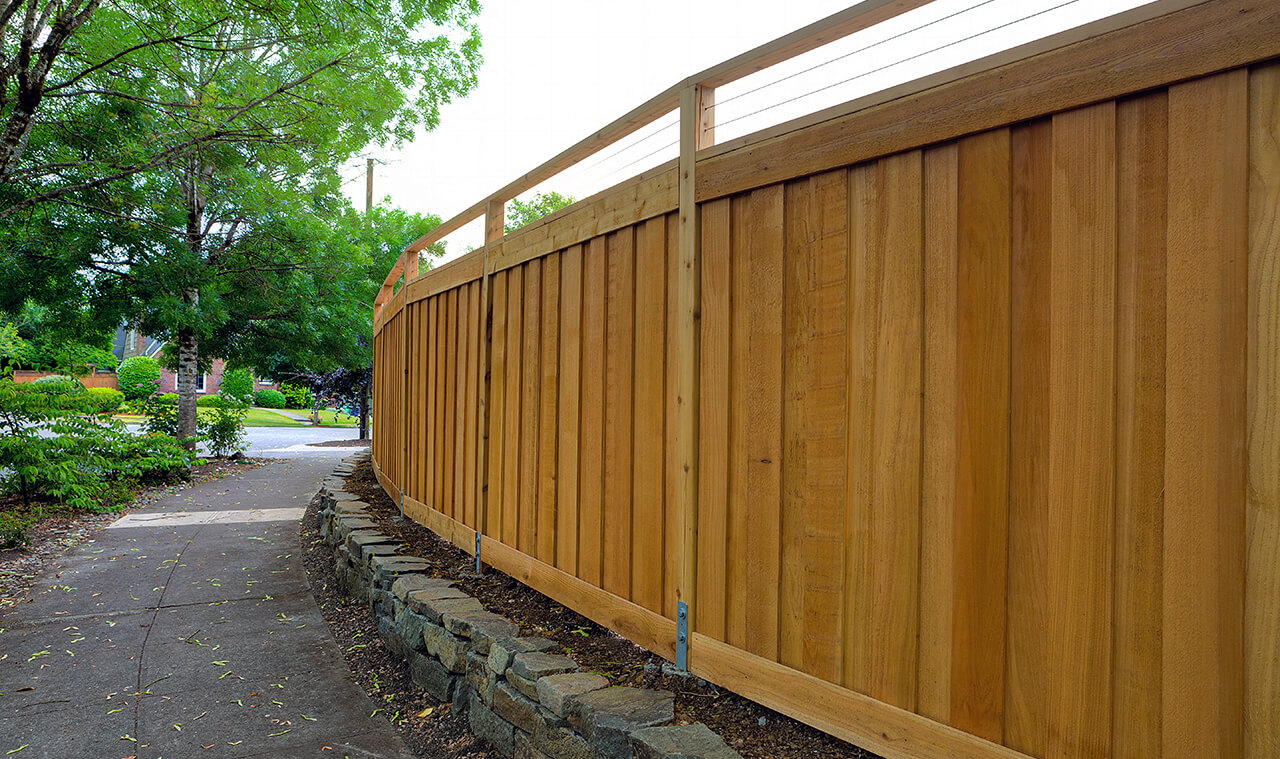- Comparing Fence Types
What Type of Fence is Best in Colorado Springs & Denver
While fencing is a suitable and even beneficial feature for many properties regardless of region, property owners stand to gain even more by choosing a fencing style and material that works well in their particular location’s weather and climate.
While fencing is a suitable and even beneficial feature for many properties regardless of region, property owners stand to gain even more by choosing a fencing style and material that works well in their particular location’s weather and climate.
Landowners situated on the eastern face of the Southern Rocky Mountains in cities such as Colorado Springs and Denver are well-acquainted with the region’s semi-arid climate featuring hot summers and snowy winters. As such, they should choose the best fence material to withstand these elements. Here is a closer look at what residential property owners in the Front Range Urban Corridor should consider when choosing a durable fence that is easy to maintain in the High Plains.
What are the Different Types of Fences?
When it comes to fencing, property owners have multiple choices in terms of styles and materials, including wood fences, vinyl fences, iron fences, chain link fences, split-rail fences, metal fences, and picket privacy fences. Each style possesses its own set of pros and cons in terms of security, visual appeal, and maintenance. Additionally, certain types of fencing tend to better complement specific home styles:
- Neo-Colonial and Victorian homes and cottages look good with wooden picket fences that are painted or stained.
- Vertical-board or horizontal-board fences complement many ranch-style houses.
- Decorative metal complements urban brownstones and Mission Revival Style homes.
Chain link fences are a cost-effective option, although they are lacking in visual appeal. The cost of wooden fences varies greatly depending on the type of wood chosen. Cedar and redwood are often used for privacy fences because they are durable yet not expensive, making them some of the best privacy fence material.
What Type of Fence is Most Durable in Colorado?
Building a fence that can withstand the strong winds, beating sunshine, and heavy snow of Colorado Springs and Denver depends on what materials you choose and how meticulous you are during the installation process itself. For example, frost heaving during freezing cold weather can naturally push fence posts out of their holes. To prevent this from happening, posts need to go a couple feet below the frost line or be set in concrete footers.
 Weather also impacts materials, which then affects your maintenance requirements. Wood is a popular material choice in the central Colorado area with its semi-arid climate because of the material’s innate flexibility, which boosts its resiliency and longevity. On the flip side, periods of wet and then dry weather can cause shrinking and expanding throughout the wood, which may push screws and nails from the fence and cause rails or boards to come loose. However, you can counteract weather damage on wood picket, privacy or split-rail fences by painting, staining or applying a clear sealant to the material.
Weather also impacts materials, which then affects your maintenance requirements. Wood is a popular material choice in the central Colorado area with its semi-arid climate because of the material’s innate flexibility, which boosts its resiliency and longevity. On the flip side, periods of wet and then dry weather can cause shrinking and expanding throughout the wood, which may push screws and nails from the fence and cause rails or boards to come loose. However, you can counteract weather damage on wood picket, privacy or split-rail fences by painting, staining or applying a clear sealant to the material.
Related: Does Homeowners Insurance Cover Fences?
Vinyl fencing is beneficial because it doesn’t absorb water and won’t rot. However, dry cold weather can cause the material to become brittle, which leads to pieces snapping or cracking.
From a strictly structural standpoint, steel or wrought iron fences are especially suitable for the High Plains, because they hold up well against strong winds and snow. Aluminum is also a good choice for severe weather fencing because it isn’t prone to water absorption or wind damage.
How to Give Your Fence a Long Life
Regardless of which material you choose, your fence will eventually need maintenance, such as applying another coat of sealant, replacing hardware, or restoring a post that gets knocked down by wind. However, by taking the weather and climate of your local area into consideration, you can mitigate the amount of care required in the coming months and years.
To save yourself time, money and heartache down the road, consult with a professional fence company to decide which type of fence is preferable for your Front Range home and how to install the structure for optimum durability and minimal maintenance.

